Jepp, Who Defied the Stars
by Katherine Marsh
Katherine Marsh's (The Night Tourist) captivating tale transports readers to 16th-century Astraveld, in the Netherlands, and places us in the shoes of 15-year-old Jepp, a dwarf with a loving innkeeper mother and an unknown father. Jepp searches the faces of the inn's guests to see if one of them might be his father. (He's already ruled out townsfolk men.) Then one night Don Diego arrives in town. He is a man of means, and when Jepp asks him if he knows his father, Don (as Jepp comes to call him) denies any such knowledge. But he does make Jepp an offer, to take him to the Infanta's court--"to see the world, and learn your place in it," as his mother tells him by way of encouragement.
Where Jepp was raised in Astraveld free to roam and pursue his own interests, at the royal court (the Infanta is a descendent of the Hapsburgs in Spain), he's forced to pop out of pies and play the buffoon. He comes to think of it as a "counterfeit paradise." But he also meets others like himself for the first time. Pim, one of the (normal-sized) court favorites, invites Jepp to be part of a dance lesson with Lia, a golden-haired dwarf with the voice of a songbird. Lia dances beautifully and Pim gently corrects her steps, and focuses all of his attentions on her. Jepp quickly surmises that Pim plans to make Jepp the clown with two left feet and asks Lia to give him private lessons so he can dance well, too. In the process, Jepp falls in love with Lia, and they form a friendship and confide in each other. Their friendship remains chaste, but teenaged Lia becomes pregnant. Jepp is crushed. A gnawing suspicion begins to grow in Jepp's conscience. And Jepp worries for Lia's well-being. Lia enlists Jepp's help to escape the court and sets in motion a sequence of events that forever changes him.
Marsh's exquisite writing achieves a formality of language that hints at antiquity without sacrificing accessibility. Her use of the cutaway from Jepp's present journey to past events that led him on this road, "imprisoned" in a coach, helps build suspense and allows us to watch as his life experiences and maturity chip away at his small-town innocence and innate sense of trust.
The author divides the book in three parts, and in the second part, the flashbacks cease--readers become immersed in Jepp's present. His coach's destination is the estate of Lord Tycho Brahe, an odd fellow with a prosthetic nose, who becomes an unlikely champion for Jepp, inviting him into his laboratory with the other scholars. "What I first took to be sorcery is actually science, man's own magic," Jepp observes.
Through Jepp, readers experience the dawning of the ideas at the root of the Renaissance, where science and art commingle. Tycho's daughter, Magdalene, creates the astrology charts for courts across Europe, and Tycho and his team of scientists track the coordinates of stars in the sky. Eventually, Jepp earns the task of cleaning the celestial globe, the map of the heavens where Tycho and the scientists record their discoveries of the stars. "I gently touch the stars," Jepp thinks, "wondering if they hold my fate or whether holding them, as I do now, allows me to create my own."
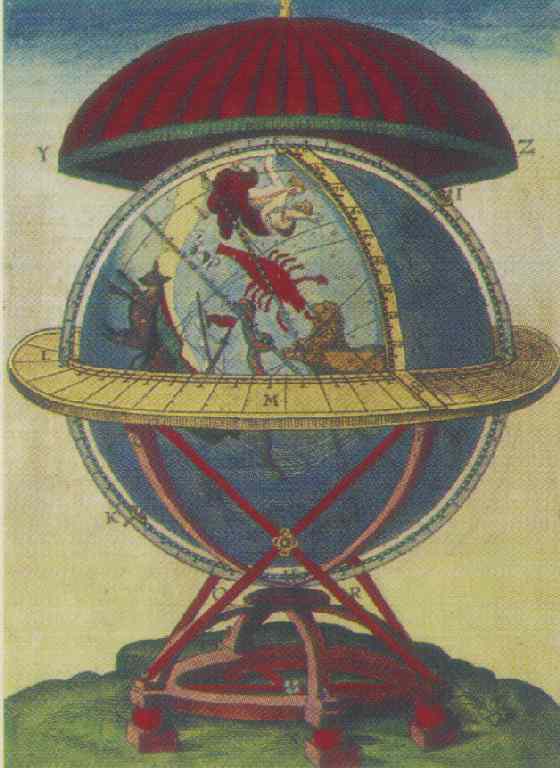 And this is the central question for Jepp. While Jepp believes human beings make our own fates, Magdalene believes the stars determine our course. As the story progresses, they come to respect one another, and open up to the possibilities of the other's point of view. Because her father married for love, not station, Magdalene cannot take her father's name nor inherit his lands. Like Jepp, she knows what it means to have no true place in society.
And this is the central question for Jepp. While Jepp believes human beings make our own fates, Magdalene believes the stars determine our course. As the story progresses, they come to respect one another, and open up to the possibilities of the other's point of view. Because her father married for love, not station, Magdalene cannot take her father's name nor inherit his lands. Like Jepp, she knows what it means to have no true place in society.
Marsh creates a world in which science and faith in humankind's possibilities rest side by side, and not always peacefully. She places Jepp at the heart of these shifts, and allows him to truly experience them; as he tells Magdalene, "Is not our capacity to choose, to chase, to dream of becoming other than we are, more powerful than the patterns of the stars?" Even as Jepp continues his search for his father and true heritage, readers will feel confident that whatever he discovers, he has seen the world and will find his place in it. His story may be set in 16th-century Europe, but his journey is timeless. --Jennifer M. Brown



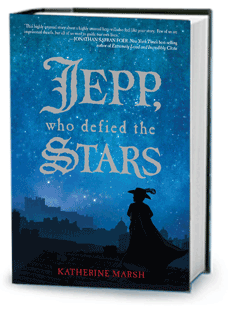
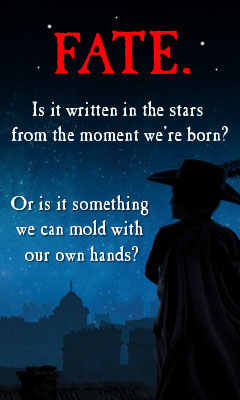
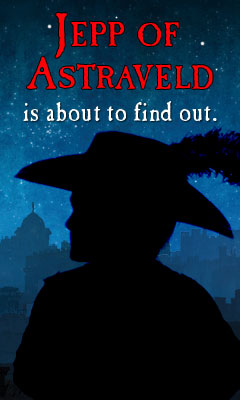

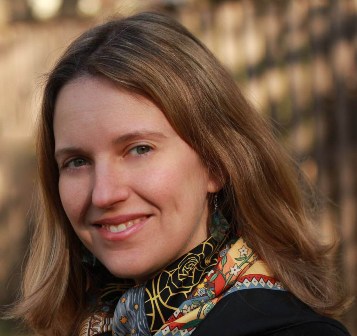 Katherine Marsh was born exactly as charted by an astrologer whom her mother, then 30, consulted back in the 1960s. The astrologer predicted that her mother would have a girl late in life, and that she'd be a Scorpio. Marsh struggled with the idea of fate but also believed she could make her own decisions. "That struggle was something I wanted to write about," said Marsh. "I did some research and discovered there was this time when science and astrology were one and the same." That time is the 16th-century setting for Jepp, Who Defied the Stars.
Katherine Marsh was born exactly as charted by an astrologer whom her mother, then 30, consulted back in the 1960s. The astrologer predicted that her mother would have a girl late in life, and that she'd be a Scorpio. Marsh struggled with the idea of fate but also believed she could make her own decisions. "That struggle was something I wanted to write about," said Marsh. "I did some research and discovered there was this time when science and astrology were one and the same." That time is the 16th-century setting for Jepp, Who Defied the Stars.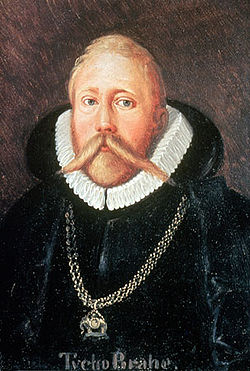 That also goes to the heart of the Renaissance, doesn't it?
That also goes to the heart of the Renaissance, doesn't it?